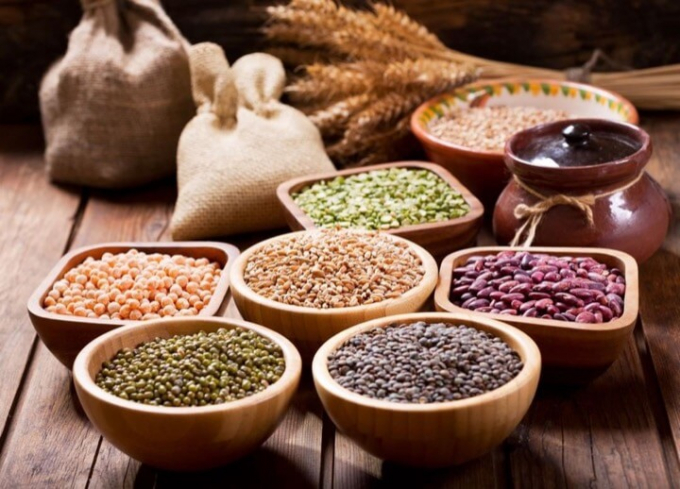May 21, 2025 | 07:06 GMT +7
May 21, 2025 | 07:06 GMT +7
Hotline: 0913.378.918
May 21, 2025 | 07:06 GMT +7
Hotline: 0913.378.918

U.S. agricultural exports have been on a wild ride the past few years, but be prepared for even more volatility, an ag official says.
"This (world ag trade) is not going to be smooth. The volatility we're going to see going forward, as a result of China and everything else going on, is something we all have to wrap our heads around," said Gregg Doud, immediate past chief agricultural negotiator with the Office of the U.S. Trade Representative.
"This is really important going forward," he said.
Doud spoke Feb. 23 in a webinar on "Ag Trade: Outlook on Global Markets and Negotiations." The event, open to the news media, was sponsored by the Oak Brook, Ill.-based Farm Foundation, which says it "accelerates practical solutions for agriculture."
Also on the panel were Kanlaya Barr, senior economist with John Deere; Cassandra Kuball, vice president of Michael Torrey Associates, a lobbying firm; and Sharon Sydow, senior economist in the Office of the Chief Economist of the U.S. Department of Agriculture.
"2020 was a really good year for U.S. ag exports, after a real slow start," said Doud, who recently joined Aimpoint Research as vice president of global situational awareness and chief economist.
China remains crucial for continued progress in ag exports. That goal became easier because, after recent trade negotiations, more than 4,000 U.S. ag production facilities now are eligible to export their products to China, up from about 1,500 eligible facilities before the negotiations, Doud said.
"This is a very big thing to keep in mind as we go forward. The improvements in market access we now have in place are going to treat us well," Doug said.
But the U.S. needs to "be competitive in world marketplace on prices, not just in China but everywhere," he said, noting that the weaker American greenback makes U.S. products more affordable.
Doug pointed to this crucial but sometimes overlooked development: Last year, China banned swill-feeding of hogs. Swill-feeding is cooked food waste, or table scraps, fed to hogs.
The Chinese government said swill-feeding was a major contributor to the spread of deadly African swine fever.
"Keep in mind that half the hogs in the world are in China, and maybe half those hogs at times were fed food scraps," Doud said. As China "expands more into Western-style (livestock) confinement operations, it's important to lay in food supplies" — some of it imported grains.
Sydow recapped recent USDA projections for strong 2021 U.S. ag exports.
But competition from Russia, Brazil and Argentina is strong and growing, requiring U.S. ag exports to become more competitive, she said, stressing that exports are essential for many U.S. ag commodities to continue growing.
Barr said she grew up in Thailand. When she left two decades ago, farmers there were "planting and harvesting rice by hand," using water buffalo. Today, technology and trade has changed how world ag operates.
World trade has helped to reduce poverty globally, and ag exports, in turn, are crucial to U.S. ag. About 20% of total U.S. ag production is exported, she noted.
Kuball looked primarily at the policy side of U.S. ag. Her employer, Washington, D.C.-based Michael Torrey, says it "has served companies and organizations who want their voices heard in Washington on a wide range of issues in agriculture, food and financial services. With experience in lobbying, coalition building, issues management and communications, our team specializes in building custom engagement strategies for every client."
Under the Biden administration, issues such as climate change and multilateral trade agreements will take on greater prominence. "Food and agriculture will be very much on the table," she said.
Value-added food products are increasingly important. "We're going beyond bulk (food exports)," and that needs to be considered in U.S. ag trade negotiations, she said.
AgWeek

(VAN) Attempts to bring down the price of the Japanese staple have had little effect amid a cost-of-living crisis.

(VAN) Fourth most important food crop in peril as Latin America and Caribbean suffer from slow-onset climate disaster.

(VAN) Shifting market dynamics and the noise around new legislation has propelled Trouw Nutrition’s research around early life nutrition in poultry. Today, it continues to be a key area of research.

(VAN) India is concerned about its food security and the livelihoods of its farmers if more US food imports are allowed.

(VAN) FAO's Director-General emphasises the need to work together to transform agrifood systems.

(VAN) Europe is facing its worst outbreak of foot-and-mouth since the start of the century.

(VAN) The central authorities, in early April, released a 10-year plan for rural vitalization.